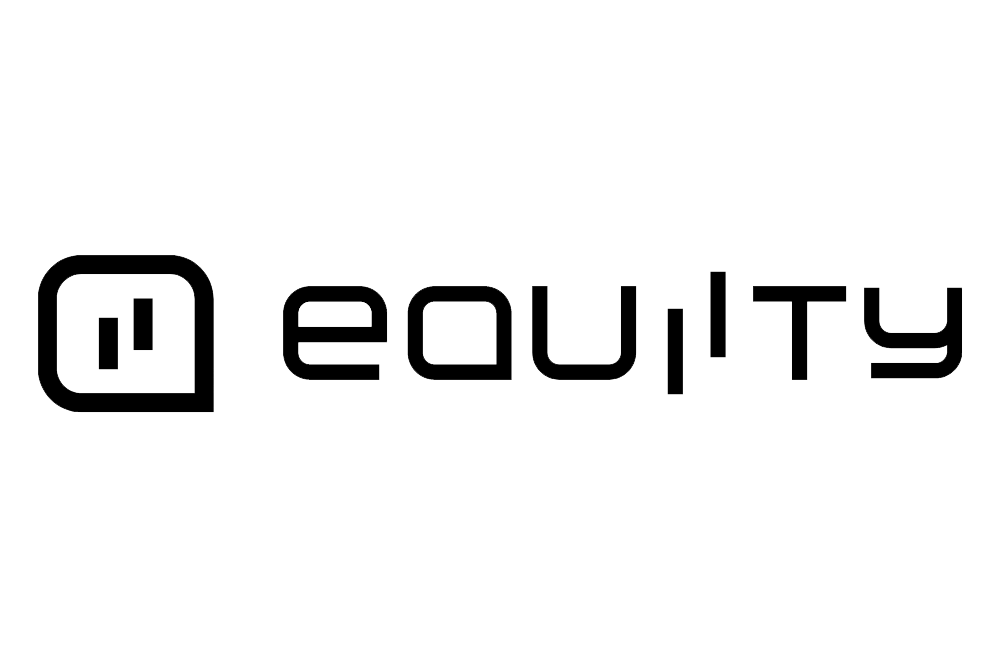What is Equity Trading?
Equity trading or stock trading are similar with different names. Inequity trading, stocks or shares or equities are purchased and sold by the investors of the financial markets. The traded shares are of a public company that is traded through a stock exchange or over-the-counter methods. A trader can invest in equities in some ways.
All counties have their stock exchange like the London Stock Exchange of the UK. At this place, the actual trading occurs where equities are bought and sold. Different stock exchanges have their trading hours depending upon the public, industries and sectors. The equity trading mostly works on weekdays and closes during weekends.
Equities are a popular investment instrument of the financial market. It is available in shares and investment funds as well. Exchange-traded funds (ETFs) are the best example of investment funds used in the equities market.
What is Equity in Trading?
Equity stands for the stake of the shareholders in the company. The equity of the shareholder is identified when the balance sheet of the company is formulated. The balance sheet of a company shows the total assets and liabilities. Where the equity is calculated by subtracting the total liabilities of the company from the total assets. This helps the companies to find out other financial information and ratios.
So, we can say that equity is a significant part of the trading of stocks as well as the companies. Without equity in the trade, investing in companies is not possible, and financial factors are also affected. Thus, a necessary part of companies’ trade.
Cash Equity Trading
The financial institutions buy and sell stocks on behalf of their clients, called cash equity trading. Working similarly to equity trading, the shares are purchased and sold from a listed company for earning profit. The stock prices fall and rise, which leads to profit and loss. The institutions predict the value of equities whether they will rise or fall. When the forecast is right then, traders earn profits, and institutions charge a commission fee.
Ways of trading equity
Equities could be traded in various ways depending upon the requirements of the investors. Other than this, there are several factors that will impact the equity trade; it could be the duration of the investment or market volatility. Below discussed are the ways that a trader can choose to trade equities.
Purchase of Equities
The most basic and traditional form of equity trading is purchasing shares through online brokers. Once the broker is decided, the trader opts for the number of shares they want to buy. For example, it could be five shares or twenty shares as per the investor’s fund availability.
The traders of such investments hold the shares for a long period of time. In the process, they earn dividends from the shares, which the traders could save or reinvest.
As the traders will buy the shares and not trade or speculate on them. The trader gets the ownership of the stock straightaway. Traders can even hold the position with the shares without any extra fee charges through commission-free online brokers.
Even traders can sell back the stocks or equities to the broker when they forecast profits. Thus, with simple processes, traders can sell shares and have profits in their accounts.
CFD Equities
Contract of differences is a popular way of trading equities. As the name suggests, it is a contract where shares are traded for a short term strategy. In the UK, seasoned traders invest in equities for a short duration; it may be for a few hours or days. So, traders target low margin profits with one to two per cent per trade. So, equity trade could be placed in dozens with positions of trading over the week.
Traders who have knowledge of the market and can predict the fluctuations easily can enjoy the small margin of profits to add up a high profit altogether.
CFD equity trading is a profitable and mostly used UK trade instrument. This saves traders from paying high commissions to online brokers and other hidden fees. A trading opportunity without the ownership of the equity share. Where traders can go for long and short positions in the financial market. Giving traders a chance to earn profits from the rise and fall of the prices.
Equity Options Trading
Equity options are also termed stock options that offer traders a more advanced trading approach. In options trading, investors are allowed to access the chosen market by paying a small premium of five to ten per cent of the contract value. Equity options consist of hundred stocks, where traders have to go for calls or puts then buying and selling at prices.
It gives the traders the right to buy or sell the options before the contract date but is not an obligation. That is, traders, in case of wrong decisions, will have to face loss of the premium only.
A good option for traders to earn high profits without much risk and loss.
Spread Betting
Spread betting is placing a bet on the price movements of the equity shares. In this, two prices are quoted, the bid price and the ask price. The traders bet on whether the price will be less than the bid price or more than the ask price. It is similar to CFD trading, where no ownership is required, and traders can speculate over the increase and decrease of the prices.
Spread betting operates on points and is tax-free trading in the UK. Thus, a profitable trade, also known as gambling.
Benefits of Equity Trading
To make it clearer and wise to our readers, we have listed below the benefits of equity trading. A much-traded market, the stock market, has always been in the limelight for its profits and other financial factors. So, let’s quickly check the benefits of trading in stocks:
- Accessible: Trading in equities is easily accessible from several international markets. Many stock exchanges and brokers are ready to help investors online with their facilities, making the equity trade more convenient and reachable. Traders can choose the stock exchange and company for investment as per their requirements.
- Designed for all: The equity trade market is designed for all levels of traders. The traders with different skill levels can trade in the market and access help if needed. For updating traders, exchanges publish timely reports, news alerts about various companies and other economic data. These serve as aid for investors of the financial markets. The abundance of knowledge is not required for the trade of equities; traders can choose brokers that guide and educate traders with demo accounts and other facilities. Therefore, every sector of the traders can invest efficiently.
- Trading feasibility: Earlier, traders with fewer funds and trading fees were not allowed to trade due to fund problems. They were not able to pay the high brokerage fees and other amounts. The large investors used to take advantage of the equity trade. Traders with small volumes were not able to trade in the market. But, with the technological developments, small investors and large investors both can now trade. The brokerage charges are as per the facility that the traders use, trade is made open for small volume investors, and minimums are removed. Thus, making the trade feasible for all levels of investors.
- Margin: The securities of the market can be traded on a margin with leverage of 1:5. Thus, making the equity trade more profitable with twenty per cent of stake size. With the leverage and margin, traders are not required to pay the full amount. They can have a high position in the market with small investments.
What is Equity in Forex?
Equity in the forex market is the amount of money that the traders have in their trading accounts. It is the plus and minus of the profit and loss from the open positions. However, if a trader does not hold any open position, then their equity equals their balance. The equity is located at various spots of the trading platforms, depending upon the used platform such as MetaTrader4 and MetaTrader5.
There are certain parameters to understand the equity trade meaning in the forex market. The first framework is margin, the amount which is required to utilise the leverage ratio furnished by the broker. Forex market is a leveraged market, and traders need a margin amount to trade on higher positions.
Next is the balance; it is the total balance that traders require to start trade. Any open position does not influence the balance until the active trade positions are closed.
Profit and loss is the third parameter of equity in forex. It is the unrealised profit or loss. They define the accurate position of the trader in the market without adding these to the account.
Types of Equities
The type of equities depends upon the size of the company, as this factor affects the equities.
Large Capital: These are the stocks or equities from large capital companies. Also referred to as the blue-chip stocks. These are profitable due to the regular dividends offered and the growth of the share prices.
Medium Capital: A bit riskier than the large capital companies, these are the medium-sized companies that offer equities. They provide dividends and have growth potential.
Small Capital: These are the riskiest investments in small capital companies. They do not provide any dividend or any other facility. But, if the company succeeds, then the prices of equities grow.
Drawbacks of Equity Trading
Below listed are the risks that a trader of equity may face:
- Returns are not known
- Hard to plan finances
- High risk of investment loss if the company goes bankrupt
- Equities prices keep fluctuating
Equity Trading Strategies
We have discussed so far what is an equity trade? Trading balance, equity trading meaning, equity in forex etc. But all these work only if a trader uses an appropriate equity trading strategy. No trader can succeed without planning and analysing the market. Therefore, let’s drive into the equity trading strategies:
Buy and Hold
The primary strategy of equity trading is the buy and hold strategy. In this, traders buy equity shares and hold them for years—a long term trade strategy of equity trading. Thus, the traders avoid short term fluctuations of the equity and concentrate on the long term benefits of the company. It is an excellent traditional way of investing in equity shares. Moreover, if the companies invested in offer dividend payments, then the buy and hold strategy suggests reinvesting inequities. This will further increase the money through compound interest.
Swing Trading
A short term trading strategy, swing trading, should be used after a trader gets familiar with equity trading. In this strategy, the trader holds the position for a period of two to three months maximum. Thus, traders focus on the rise and fall of the trends. When the swing trader feels that the trend is over, then they will exit the position and enter the sell position by catching a reversal.
Day Trading
A frequently used trading strategy by short term traders of the equity market. The strategy is operated by experienced traders who open and close the trade within a day. In fact, seasoned traders hold their positions for a few minutes. Thus, a quick trade of equities by day trade could be managed only by skilled traders.
Day traders require technical analysis and knowledge. Traders must be quick in reading the pricing charts and patterns. Traders may take months or years to master the skill of day trading. Some of the Successful day trading strategies.
Conclusion
Equity trading is an excellent option for traders. They can invest in the stocks of a company and earn dividends. Further, they can trade as per their requirements and choose spread betting, CFD equities, equity options and purchase of equities for trading. Equity trading has various options open for all kinds of traders. Therefore, financial traders must invest in equities. They can take the help of regulated brokers such as Capitalix for a better trade experience.
Some tips that traders of equity can consider are:
- Using equity trading signals
- Learn technical analysis
- Use a demo account before live trading


